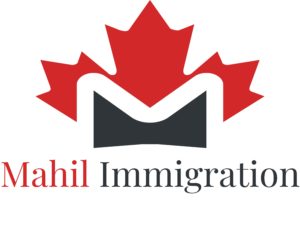Canada’s new occupational classification (NOC) system – How will impact economic classes and temporary foreign worker applications?
Canada’s immigration system will modify the way jobs are classified in the fall of 2022. The changes will affect some applicants from certain economic classes and foreign workers, though the federal government has not stated which ones.
Canada’s technique for classifying jobs is the National Occupational Classification (NOC). The NOC is reviewed every year and updated every five years to adequately reflect Canada’s changing labour market. It is also upgraded every ten years, with the current version representing the most significant advancement since 2011. Statistics Canada released its updated NOC 2021 report last month.
Since the federal and provincial governments use the NOC to manage skilled worker immigration programmes and the Temporary Foreign Worker Program, it is critical for Canadian immigration (TFWP). As a result, an immigrant or temporary foreign worker must meet the program’s NOC eligibility conditions before applying. Express Entry, for example, requires skilled worker immigrants to show work experience in a NOC that fits within the NOC 0, A, or B skill type group.

Immigration, Refugees and Citizenship Canada (IRCC) and Canada’s provinces and territories are currently using NOC 2016 to determine eligibility for skilled worker immigration programmes. Employment and Social Development Canada (ESDC) has also used NOC 2016 to evaluate Labour Market Impact Assessment (LMIA) submissions. The LMIA (Labour Market Impact Assessment) is a labour market examination conducted by the Canadian government. The Temporary Foreign Worker Program requires it (TFWP).
When evaluating an LMIA application, ESDC must determine whether hiring a foreign person would benefit or harm Canadian workers. To support their work visa applications, a foreign worker may submit their LMIA and employment offer letters to IRCC at that time.
According to the IRCC, the federal government plans to adopt the new job classification system in “fall 2022.” As a result, IRCC will have more time to tell stakeholders about the changes and implement the new system across all of its programmes. IRCC also collaborates with ESDC to ensure consistency in the work permit application process.
The Canadian government will now categorize employment based on a new Training, Education, Experience, and Responsibilities (TEER) system, rather than the current practice of classifying jobs based on skill type.
NOC skill levels are currently divided into four categories: A, B, C, and D.
NOC 2021 departs from this approach by introducing the TEER system, which is divided into six categories: TEER 0, 1, 2, 3, 4, and 5.
TEER 0
Management-related occupations
TEER 1
Under TEER category two, attainment of a bachelor’s degree, master’s degree, or doctorate, or years of experience in a particular occupation.
TEER 2
TEER category three requires completion of a two- to three-year postsecondary education programme at a community college, school of technology, or CEGEP, or completion of a two- to a five-year apprenticeship training programme; or occupations with supervisory or major safety responsibilities (police officers and firefighters); or several years of experience in a given occupation.
TEER 3
Completion of a two-year postsecondary education programme at a community college, institute of technology, or CEGEP; or two-year apprenticeship training; or more than six months of on-the-job training, training courses, or specific professional experience with a high school diploma; or several years of experience in a given occupation under TEER category four; or several years of experience in a given occupation under TEER category five.
TEER 4
secondary school graduate; or a combination of several weeks of on-the-job training and a high school diploma; or several years of TEER category five experience in a particular occupation (when applicable).
TEER 5
There are no formal education requirements, and only a short job demonstration is required.
Is it necessary to use TEERs instead of NOC skill levels?
This change is necessary, according to Statistics Canada, for various reasons. To begin with, defining professions based on “skill levels” is puzzling because the NOC prioritizes vocation over talents. The TEER system will concentrate on the education and experience required for specific occupations. Second, Statistics Canada contends that the former NOC classification approach creates an unnecessarily high-skilled vs. low-skilled divide. This redesign ditches the high/low classification in favour of a more accurate representation of the skills required for each job.
What does this imply for newcomers?
Once IRCC and ESDC have adopted NOC 2021, immigration and foreign worker applicants must confirm that their NOC matches the programme’s eligibility criteria to which they are applying.
One key area of concern, for example, is how IRCC and ESDC classify professions that are now classified as skill level “B.” This group has grown disproportionately large over time, according to Statistics Canada, since it encompasses occupations that require varying levels of education and experience. It is unclear which TEER categories will be eligible for Express Entry-managed programmes and other federal and provincial programmes that now require a “high skilled” NOC. For the time being, immigration applicants will have to wait for more information from IRCC and ESDC.

Choosing the right NOC is an essential part of moving to Canada. Whether you’re trying to come to Canada through an economic immigration programme like Express Entry’s Federal Skilled Worker Program or a temporary programme like the Temporary Foreign Worker Program, your acceptance is mainly dependent on the NOC code you choose.
Help is available if you are confused by the NOC system or concerned that you may have selected the incorrect NOC code. We’re here for you. Mahil Immigration is a licensed Canadian Immigration Limited Company based in Greater Vancouver Area, Canada. We are dedicated to providing strategic, innovative and thoughtful advice to our clients in all areas of Canadian Immigration.

